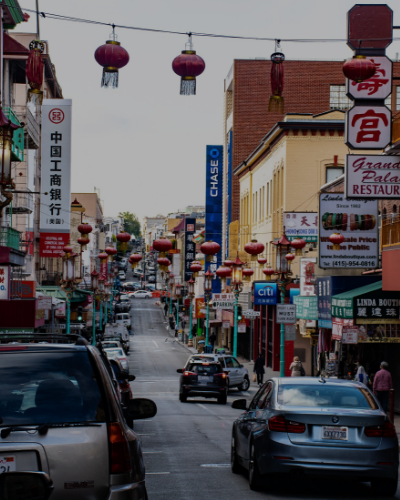I Don't Understand The Language Of This Country
Posted on July 05, 2016
“Ting bu dong” was my response to every person that said anything other than hello and how are you in Mandarin. The phrase ting bu dong translates as “I don’t understand,” so of course when I didn’t understand what someone was saying to me in Mandarin I would let them know in their language that I, the English speaking girl, did not understand. I traveled through China, a Mandarin-speaking country, for a whole month only knowing basic greetings and the phrase that I didn’t realize would always lead to more Mandarin being spoken to me. I learned very quickly that being in a country that speaks a language other than your native tongue can be a great way to improve your language and navigation skills, but it does not come without its challenges.

While in China, I researched at Beijing Normal University (BNU), a public research university in Beijing. Almost all of the students at BNU spoke some English, which made navigating on campus quite easy. But once I stepped foot off campus, I was in a different world with little to no English spoken. Because Beijing hosted the 2008 Summer Olympics, the public transportation system has some signs in English, which has made it easier for foreigners to navigate. Unfortunately, difficulties still arose when I didn’t know where I was going, or if I couldn’t read a restaurant menu or know the price of an item in a market. *fun fact about me: I don’t eat pork or beef, so knowing what was in my foods was important. Here’s what I did to navigate China with my minuscule Mandarin skills:
1) I made it my mission to learn the characters for all meats so that I would know what I could and could not eat based on the meats in the foods (authentic Chinese food seemed to be very pork and meat-heavy). Not speaking Mandarin, but knowing food characters allowed me to try, and fall in love with, many different Chinese cuisines. I was also able to help my American classmates pick foods as well.
2) I learned basic phrases, some of which I used in the wrong context. Ni hao (hello), ni hao ma (how are you), xie xie (thank you), ting bu dong (I don’t understand), and a few more. My Chinese friends and colleagues were so happy that I was trying to learn their language, and it felt good being able to say a few things. I will say that learning the phrase “ I don’t understand” in any language (ting bu dong here in China) might not be the proper response after someone says something to you in his or her language. I say that because I would respond to something I didn’t understand “ting bu dong” they would continue to speak to me in Mandarin. It wasn’t until I got back to the United States that I realized if I said something to someone in the United States in English and their response is “I don’t understand” I would try to explain it differently because not understanding doesn’t automatically mean “I don’t speak English.”

3) When making travel plans in-country, make sure to write down all the details necessary to get to and from your destination. Having written addresses, train names and times made it easier for me to get where I was trying to go. In case I got lost, I could point out my destination to someone who would try to help direct me.
4) Have a translation dictionary or phrase book handy. The only way we were able to go to the bathroom at a café was to find the page in the book that asked where the restroom was because no one at the café understood our gestures or words. You never know when you might need it!

5) Make friends with locals that speak English as well as the native language. I had the best ramen of my life in China because a friend I made ordered it for me.
6) Be patient. Even if people speak excellent English, they may not understand what you mean because they didn’t learn English the way you did. I left China being able to explain things that I never thought I would be able to or have to explain.
Ultimately, know that it is okay to go abroad without speaking the native language of the country you’ll be going to. It can be a challenge, but if you follow some of my advice, you will leave that country knowing that you tried your best to communicate with others.
Author: Mylaica Conner
